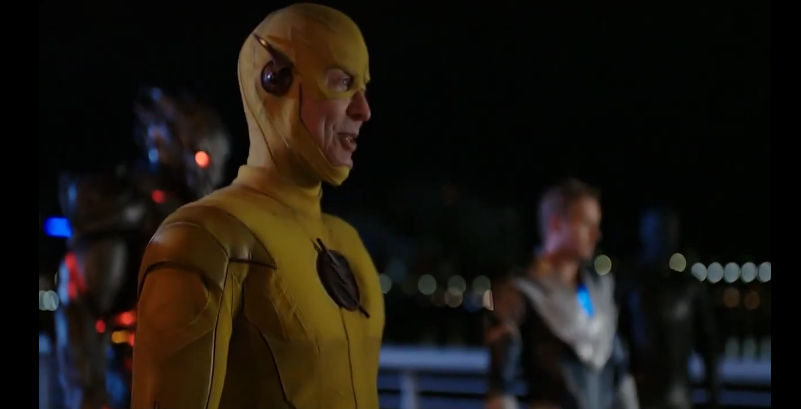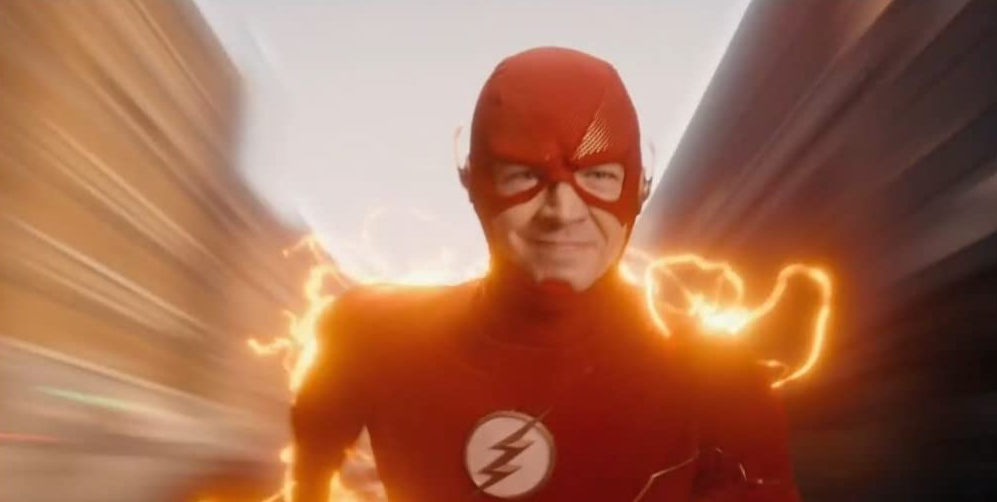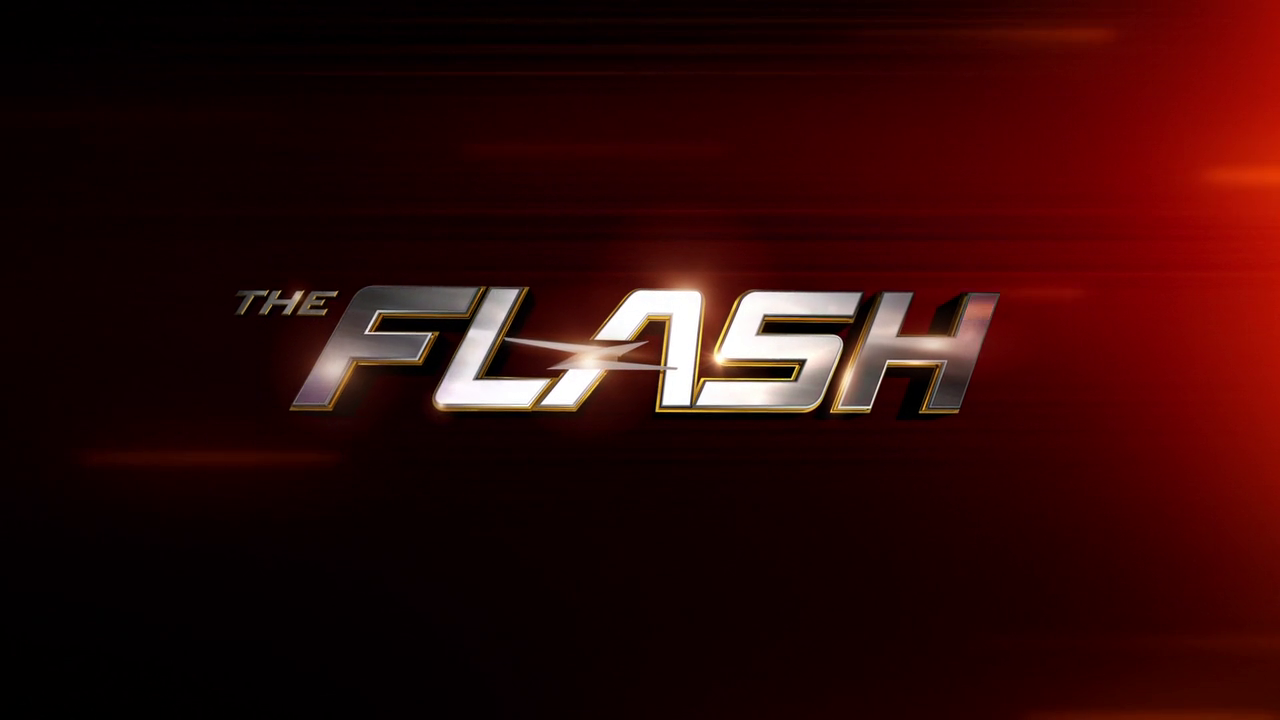NOTE: Full spoilers for this episode of, “The Flash” are present in this review
After a very impressive nine-season run, The Flash has officially made it to the finish line. In the process, The CW’s entire shared ‘Arrowverse’ franchise also comes to a close with The Flash’s final episode, following a slightly lengthier ten years and change. The Arrowverse’s official retirement was recently cemented after The CW confirmed that its final planned spin-off series, Justice U would not be picked up as well, thus marking the end of an era for DC television, as DC Studios prepares to reboot and relaunch most of DC’s television slate to be set within a central, unified cinematic universe, one seemingly entirely hosted on Warner Bros. Discovery’s streaming platform, Max.
The end of The CW’s The Flash series also interestingly comes mere weeks before Warner Bros.’ unrelated The Flash movie hits theatres to boot, which will in turn serve as the vehicle through which DC’s shared movie continuity will also be reset, itself also planned to be folded into James Gunn’s and Peter Safran’s newly-minted, fully-unified ‘DCU’. The future of live-action DC media certainly appears to be pretty promising with the imminent, ahem, ‘rebirth’ of the DCU, granted, but for now, we’re still very much in the process of clearing out the clutter from DC’s old guard. This reality constantly feels apparent throughout The Flash’s series finale too.
“A New World, Part Four” wraps up The Flash’s final four-part storyline with a stylish (for CW standards), but disappointingly hollow conclusion. Even while Team Flash fights to save Central City one last time, before preparing to celebrate the birth of baby Nora in the present day, it’s tough to feel much attachment to anything that’s happening, what with so much upheaval throughout DC’s entertainment slate since late last year. If you’ve stuck by the Arrowverse throughout its decade-long lifespan, there is at least some satisfaction to be had in seeing so many classic faces square off in one last epic (for CW standards) speedster battle, one with the Arrowverse’s entire timeline at stake. Again though, those stakes would mean a lot more if the Arrowverse wasn’t being erased by the coming of the DCU anyway, making Team Flash’s final battle feel emotionally empty before it even starts.

Perhaps this is also a consequence of so much wibbly-wobbly, timey-wimey tomfoolery throughout The Flash’s nine seasons as well. Even as the resurrected Eddie Thawne becomes the Arrowverse’s Cobalt Blue, subbing in as a decent surrogate for Barry Allen’s lost twin brother, Malcolm Thawne from DC Comics lore, a promising device for a final battle has already been let down by Eddie’s return making very little sense, even by this show’s standards. Why does the Negative Speed Force go to all the trouble of resurrecting the, “Worst Thawne” for its designs? Why is Cobalt Blue suddenly becoming an issue now, when the Negative Speed Force has had the better part of a decade to conspire against the Speed Force’s destruction? How and why is Eddie able to bring back every evil speedster from The Flash’s history for one big duel with Team Flash throughout Central City? Great questions. This show does not appear to have definitive answers. I guess it all comes down to the Negative Speed Force being able to do whatever it wants in the name of evil. Why not?
This is why, despite all of the lightning-slinging, super-speeding and speedster-smacking that punctuates The Flash’s final episode, there’s an overall sense of a big, old shrug behind what should be a showstopping final set piece for The Flash, and the Arrowverse as a whole. The CW clearly broke its modest bank having major super-villains like Zoom, Savitar, Godspeed and Reverse-Flash all standing alongside each other for this finale, somehow taking orders from Eddie’s Cobalt Blue, but hey, we need a big fight, so, whatever.
It’s also conspicuous that Team Flash members like Cecile, now officially going by the superhero identity, “Virtue”, have seen a massive power upgrade in this final episode! All of a sudden, Cecile can fly around, brain blast everyone, and be virtually invulnerable, even to speedster lightning! When did that happen?! I know that this series has frequently referenced how powerful Cecile supposedly is, but she hasn’t done anything on this scale before now! Hell, even Khione’s huge power boost in this finale feels a little bit plot-convenient, with The Flash once again leaning on the same tired device of foreshadowing how powerful Khione supposedly is in prior episodes, but never adequately filling in the blanks surrounding her limits, or how she came to be.
“If you’ve stuck by the Arrowverse throughout its decade-long lifespan, there is at least some satisfaction to be had in seeing so many classic faces square off in one last epic (for CW standards) speedster battle.”
The CW’s expected budget constraints also result in each evil speedster, who, bear in mind, used to be season-long threats in most cases (!!), being apprehended laughably easily, even by lone Team Flash members! It’s like a Mega Man-style boss rush sequence before a true evil power that never adequately takes form. It’s supposed to take form via Eddie’s Cobalt Blue, but that concept never truly gets off the ground. Oh, but it feels plenty true to the worst story moments that define the Arrowverse, mind you, because Eddie’s mental corruption by the Negative Speed Force is completely solved by, what else, a pep talk from Barry. A pep talk saves the timeline, neutralizes both Eddie and the Negative Speed Force, and somehow creates a nebulous sense of ultimate balance between good and evil. Take a shot. Actually, this is the end of the Arrowverse as we know it, so down the bottle, then open a second bottle, because just one probably isn’t going to cut it after a universe-scale final battle ends on this note.
Even this finale’s subsequent epilogue moments feel frustratingly tired for the most part, though some do still manage to land here and there. Khione being summoned back to the heavens by a Wells (wasn’t every Wells eradicated from Earth-Prime after Nash’s death?), restoring Caitlin after she leaves, isn’t too bad, even if it is a bit of a middle finger to Frost, and by extension, Chillblaine. Likewise, the birth of Nora is a little bit amusing in a trippy, time-breaking sort of way, with the show even acknowledging how bizarre it is that Nora is able to interact with her infant self.
Other moments though, like Joe’s contrived, overdue marriage proposal to Cecile, completely sweep away conflicts from even within this very narrative event, leaving Cecile’s angst over breaking away from Joe in the future completely unresolved. Likewise, Barry appointing a trio of new speedsters by throwing lightning into the air is just head-scratching, since none of these speedsters have been referenced in the Arrowverse’s future, plus this decision comes completely out of nowhere. As much as it’s cool to see The Flash tip its hat to later-era DC Comics speedsters like Avery Ho, Max Mercury and Jess Chambers, the new recipients of Barry’s Speed Force ‘gift’, it’s also arguably unnecessary, especially when Barry is going to continue being The Flash indefinitely within this universe anyway.

The Flash’s final episode pulls out all the stops when it comes to a big final fight, but outside of that, it’s a mess of half-baked resolutions, and an overall sense of the the series long ago giving up on making sense of its own storytelling. It feels tragically hard to believe at this point that The Flash was once a confident, exciting prizefighter series that served as a crown jewel in The CW’s programming lineup, back when the Arrowverse was at the height of its popularity during the mid-to-late 2010’s. Despite those glory days however, The Flash has since become a tired relic of a bygone era for superhero television, leaving its series finale without much fanfare to utilize, or even much investment from the show’s writers. Even while The CW’s two remaining DC shows, Superman & Lois and Gotham Knights continue to await an uncertain fate at the time of writing, with both shows at least having the advantage of operating within their own self-contained universes, it’s tough to ignore The CW’s own executives currently championing one definitive line about their programming, going forward; “Our superhero shows have had their time.”
Out with the old, in with the new, I suppose. Still, seeing The Flash, and the overall Arrowverse, end on such a tired, thankless note nonetheless isn’t easy. The Scarlet Speedster’s legacy certainly won’t be in danger after this, particularly with Ezra Miller headlining a major blockbuster movie very soon, but considering that Grant Gustin’s Flash gave us easily the best live-action take on DC’s fleet-footed superhero to date, this series deserved to conclude on a more exciting note. At minimum, ending a decade-spanning shared television universe definitely deserved to leave an actual impact on the viewer.

